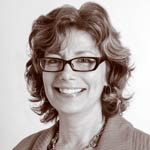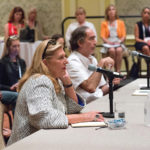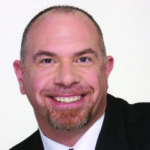In the weeks leading up to the American College of Occupational and Environmental Medicine’s (ACOEM) 1,000-plus-attendee American Occupational Health Conference — scheduled for May 3–6 at the Hilton Baltimore — Joyce Paschall, CAE, CMP, was closely monitoring the tense situation in the city. Protests had escalated over the death of Freddie Gray, a 25-year-old African-American man who was arrested by Baltimore police on April 12 and later died as a result of injuries sustained while in custody. On Monday, April 27 — the night before Paschall, ACOEM’s director of education and meetings, and several of her colleagues were scheduled to fly from their Chicago headquarters office to Baltimore — the protests turned violent.
“That was a ‘whoa, what-in-the-world-is-happening-there’ night,” Paschall said. When she arrived at ACOEM’s office on Tuesday morning, she immediately got in touch with the Hilton to make sure that “they were safe and sound, and operationally normal,” she said. “And they absolutely were. As the day progressed, we heard the National Guard was called in, and things started to happen organizationally within the city. By midday, it was clear that they had tools in place to manage the situation. We weren’t at all worried about flying in that day.”
But a big question mark loomed over the next few days. While the official start of the conference was on Sunday, May 3, pre-conference events and courses were scheduled to begin at 8 a.m. on Thursday, April 30. Paschall saw for herself once she arrived that operations at the hotel and transportation to and around the city were unaffected, and she felt assured that measures were in place “to keep things from spinning further out of control.”
How to communicate that to concerned registrants, who were calling and emailing, wondering what was going on and whether they should consider backing out of attending?
GETTING THE WORD OUT
ACOEM immediately created a splash page on its website on Tuesday, April 28, to update registrants, initially posting this message: “We are assessing the situation. Our staff are on site. The hotel is operating normally. We will post more information when we have it.” Paschall said: “Truly, there wasn’t much else to say yet.”
With the situation remaining stable on Wednesday, ACOEM’s web-page message was a bit more encouraging, noting that the hotel staff “was eagerly awaiting us to come and hold our conference,” Paschall said. “And we just kind of left it at that.”
But later that day, an ACOEM member threw the conference a lifeline. Among the association’s members — who are primarily physicians dealing with workplace health — are medical directors of large international companies, responsible for overseeing the health of staff who travel all over the world on business. “Miraculously,” Paschall said, several physicians who work for International SOS — a medical- and travel-security-assistance company that assesses risk in areas around the globe — are members. International SOS reached out to let her know that since several of its employees were attending the conference, the company was preparing a risk-management assessment for them. Would she like them to share that with her?
“I thought maybe I’d just died and gone to heaven,” Paschall said. “They’re credible and known to our audience. So I said, ‘Yes, please. How fast can you get it to me?’”
Within a day, an International SOS staff member located in the Baltimore area had prepared a several-page PDF, addressing the city’s transportation, hotels, and any areas that needed to be avoided, and sent it to Paschall. “It opened up by saying, ‘Baltimore remains a low risk for travel,’” she said. “That was line one of the report.”
ACOEM updated its splash page again on Wednesday, tweaking the usual “Know Before You Go” information to include this message: “Tomorrow, please look for a post from International SOS regarding travel to Baltimore.” On Thursday morning, all 40 registrants for the pre-course came — “and we had walk-ins,” Paschall said. “So it was like normal from that moment forward.”
CARRYING ON
In total, less than 3 percent of attendees — 30 people out of a total of 1,150 — canceled, all at the very beginning of the week leading up to the conference. While attendees may have been aware that Baltimore was at the center of a media firestorm, that didn’t overshadow the event. “It was like, ‘We’re here at a conference, let’s go to a session, let’s have an event,’” Paschall said. “It was just a completely normal operation.”
Luckily, the city’s 10 p.m. curfew was lifted on the conference’s first official day, so it had “minimal impact” — and only on pre-event attendees who wanted to go out to eat later in the evening, she said. As for what was going on outside the hotel, “if you went down into the key tourist areas, you could see the National Guard [presence]. You’d see vehicles driving around and you’d hear helicopters at night. But it was essentially a non-event.”
While it may have been business as usual for conference attendees, their presence was considered anything but by hotel staff. “They were so appreciative that we had not canceled,” Paschall said, “because groups that would have been right before us and right after us both canceled. You’ve got to think, if you’re a housekeeper, if you’re a banquet server, you don’t get that shift if there’s no group to serve and no rooms to clean. And several of our members came to us and said, ‘I’ve just had this lovely conversation with my housekeeper; she is so thrilled that we’re here because she got a full shift of work this week.’”
Paschall said that her attendees’ professional focus on the workplace made them more attuned to the conference’s impact on the local workforce, and the Baltimore meeting therefore was even more meaningful for them.
After the closing general session, attendees walked across a short passageway from the ballroom on one side of the building to the other, and “the entire hotel staff, and I mean everyone, had lined up and clapped and just thanked our folks. It was genuine, and it closed the loop,” Paschall said. “We came and we supported this workforce, and that’s what our physician members are supposed to be all about. That hits our mission, spot on.”





